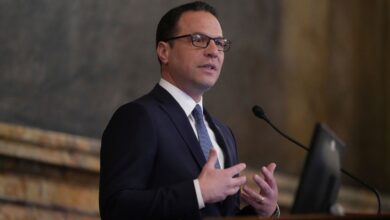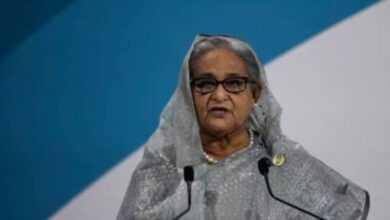Decoding PM Modi’s response to Congress’ ‘soot boot’ jibe: It could be a message for industrialists

The Opposition called the Narendra Modi-government a “soot-boot ki sarkar” (government of the corporates), and accused it of befriending and prioritising industrialists over the common man.
In his response to the jibe, Prime Minister Modi said, “I am not afraid of being seen next to an industrialist, they play as crucial a role in nation development as a labourer, a farmer or an artisan. We cannot insult them and call them chor-lootere (robbers).”
Modi was speaking at an event attended by corporate giants like Kumar Birla, chairman of Aditya Birla group, Gautam Adani of Adani Group, Subhash Chandra of Essel Group and Sanjeev Puri, MD of ITC.
Retaliation to Opposition’s comment
The PM’s statement on July 29 seems to have come as a response to continuous attacks by the Opposition. In numerous speeches and rallies Gandhi claimed that Modi is a friend of corporate entities and is ready to let their mistakes slide by.
He has alleged that PM Modi is on the same team as that of economic offenders Lalit Modi, Nirav Modi among others. This, he claimed was against the NDA government’s claim of working as a ‘pro-poor’ government.
The Congress has often called the Modi government a “crony capitalist”, accusing it of initiating developmental works citing “national interests”, while ending up helping private entities. The Congress party recently called the controversial Rafale deal to be the “biggest example of crony capitalism”.
Even in Gujarat, opposition parties have accused the BJP of favouring private players over the people and the goodwill of the state.
Following all the remarks, Modi finally defended his stand with industry leaders and said that they work hard for the country and it would be insulting if insinuated otherwise.
Modi stressed that private players open up job opportunities for the masses and overall development of states.
Shekhar Gupta, Editor of The Print, said that the PM’s statement sends a strong political message that being pro-business is not always wrong for the government. “It is a joke that the UPA is trying to call the BJP a crony capitalist. They fared no better during their regime. Modi cannot deny being close to capitalists during his reign as Gujarat CM, so now he is trying to normalise it by saying that it is not a big deal to work with businessmen,” he said.
Is Modi India Inc’s friend or foe?
There is another possible reason for the PM’s statement. While India’s formal sector has seemingly been compatible with the Modi-led NDA government, there have been underlying negative sentiments. The Modi government’s crackdown on black money led to moves like demonetisation, forcing companies to reset their business models.
The banking sector took a hit as bad loans rose for three years straight and a Rs 13,500 crore scam was detected at state-run Punjab National Bank. Further, Reserve Bank of India made NPA divergence by banks public, which took a toll on the sector.
When GST, the centralised tax regime, was launched last year, it impacted almost all sectors as businesses again had to remodel their entire tax structure. Moreover, many companies frowned upon the freedom given to investigation agencies to probe big-ticket corruption cases. Other decisions such as making India a rules-based economy, like the proposed debt tribunal and forming a real estate regulator have not gone down well with Indian industries.
With the latest statement on major corporates, many believe that Modi could be trying to repair his relations with industry giants and showcase himself as an accessible prime minister.
AK Bhattacharya, editorial director at Business Standard, said that his message has nothing to do with politics. As a chief minister, Modi had interacted with many industrialists and the transition from that to the highest office in the country, may have posed him as inapproachable. This statement sets the record straight.
Some would sure argue that in a country like India, a government would do well if it is pro-poor and pro-business, striking a right balance between the two would definitely lay the foundation for the NDA ahead of the 2019 general election.






